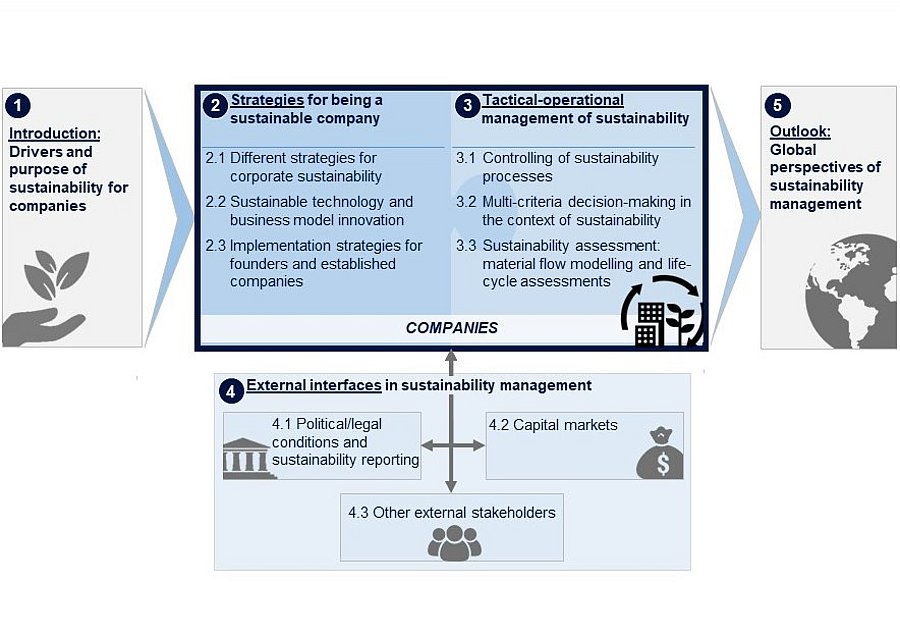The Assistant Professorship in Sustainability Management currently offers two courses for MSc students, with two further collaborative courses in development:

- Corporate Sustainability (formally Betriebswirtschaftliche Aspekte des Sustainability Managements) - taught in the winter semester
- Sustainable Business Model Innovation in Sub-Saharan Africa (Consultancy Seminar) - taught in the sommer semester
Please visit the related pages for more information.
The new Transformative Teaching Toolbox
The Transformative Teaching Toolbox as a modular set of methods that serves as an innovative training tool for teachers of all disciplines
As part of the "Educating future sustainability leaders & innovators" project, the Transformative Teaching Toolbox was developed as a modular methodological toolbox and serves as an innovative training instrument for lecturers of all disciplines in higher education. It contains methods and content from education for sustainable development (ESD) with a focus on co-creative and action-orientated learning. The aim is to make it easier for lecturers to integrate the topic of sustainability into their own courses.
In addition to the methods, the toolbox contains a good practice example of their application in a specific transdisciplinary teaching format in the form of the "Circular Business Innovation" seminar. There, students worked together with regional practice organisations to develop concrete solution concepts in the context of sustainability.
The project is being funded by the Foundation for Innovation in Higher Education from September 2022 to February 2024 and is being carried out jointly by the UNESCO Chair of Entrepreneurship & Intercultural Management and the Chair of Sustainability Management.

